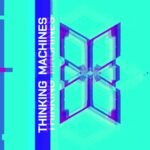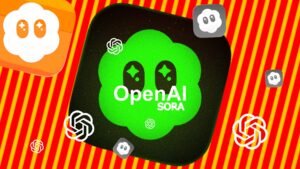
North Korea’s Advancements in Artificial Intelligence
The development of artificial intelligence (AI), particularly in machine learning (ML), has surged globally in the last decade due to increased computational power and data accessibility. While many nations invest heavily in these technologies, assessing North Korea’s AI/ML landscape is challenging due to its secretive nature and sanctions. Despite potential hardware procurement challenges, open-source information indicates active AI/ML development across sectors in North Korea.
Overview of North Korea’s AI/ML Development
Government Initiatives: North Korea has been involved in AI/ML since the 1990s, addressing challenges from air pollution forecasting to pandemic response. The country amended its constitution in 2019 to prioritize “informatization” in economic efforts, emphasizing the importance of AI and data.
Research and Academia: The establishment of the Artificial Intelligence Research Institute in 2013 and subsequent integration into the Ministry of Information Industry in 2021 signals a commitment to digitalization. Academic institutions, such as Kim Il Sung University, have been actively involved in AI-focused programs. In academia, AI/ML is embraced at various educational levels, with universities introducing AI-focused programs.
Commercial Applications: North Korean companies, like Mangyongdae Information Technology Corporation, have introduced products incorporating AI technologies, including mobile phones with features like fingerprint and voice recognition. At the enterprise level, companies like Mangyongdae Information Technology and Yalu River Technology Development incorporate AI/ML technologies into products, showcasing a comprehensive approach to AI/ML development.
Study Highlight 1: Civilian Application—Nuclear Safety
North Korean scientists published a study in 2022 on optimizing the fuel loading pattern in pressurized water reactors (PWR) using genetic algorithms. This optimization enhances nuclear safety.
North Korean scientists published a study on AI optimization for Pressurized Water Reactor (PWR) core loading patterns, enhancing nuclear safety. This civilian application focuses on improving reactor safety and power generation.
Study Highlight 2: Military Application—Wargaming/Battle Simulation
In 2022, North Korean researchers explored wargaming simulations using reinforcement learning (RL). This machine learning method was chosen for its perceived faster running speed.
A research project on wargaming simulation, using reinforcement learning, indicates military applications. The study suggests a focus on tactical-level conflicts involving artillery shells, with potential implications for strategic planning.
Sanctions and Export Control Implications
Despite sanctions, North Korean companies engaging in international AI cooperation risk breaching sanctions and being added to entity lists. Academic collaborations, especially in nuclear safety, may pose proliferation risks, requiring ongoing monitoring. Military studies with Chinese collaborations highlight potential technology transfer channels, emphasizing the need to address intangible means of technology transfer (ITT) through cloud computing services.
- Risk of International Cooperation: There’s a risk that collaboration with North Korean companies, like Yalu River Technology Development Company, could breach sanctions and lead to inclusion in the US Entity List, restricting access to US technologies.
- Nuclear Safety Studies: While there’s no recorded international collaboration, monitoring scholars’ activities is crucial for potential proliferation risks, especially regarding expertise in burnup analysis.
- Military Simulation Collaboration: Collaborations with scholars from countries under US financial restrictions, like China Unicom Ltd., highlight potential channels for technology transfers. Transfer learning poses risks of adapting civilian AI models for military purposes.










